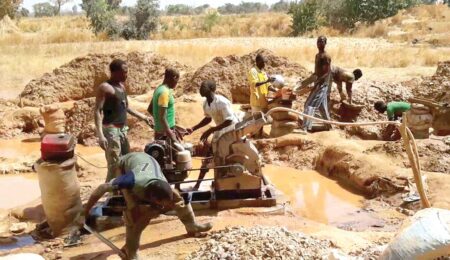Gender inequality continues to hinder sustainable development across Nigeria, despite a raft of policy interventions aimed at improving the status of women. Persistent disparities remain particularly visible in sectors such as mining, agriculture, and clean energy. Experts are calling for a feminist approach to policymaking to tackle these deep-rooted inequalities and build a more inclusive and equitable society.
At the heart of feminist policymaking lies the principle of gender equality—dismantling systemic barriers and creating equal opportunities for all. In the Nigerian context, such policies are essential to addressing long-standing social, cultural and economic factors that contribute to gender discrimination. Advocates argue that feminist policies not only empower women but also enrich the broader socio-economic landscape by ensuring their voices are reflected in decision-making processes. This inclusiveness, they say, leads to more effective and well-rounded solutions.
Nigeria’s mining industry remains heavily male-dominated, with women making up only a small fraction of the workforce. Most women in mining are engaged in informal, low-paid roles with limited job security. They face a number of hurdles, including restricted access to capital, land, and mining licences—key resources that are far more accessible to their male counterparts. This exclusion prevents women from expanding their operations or entering large-scale mining projects.

In addition, many women encounter workplace discrimination and harassment, creating an environment that is often unsafe and unwelcoming. These conditions deter more women from entering or remaining in the sector. A lack of education and training further compounds the issue, with many women denied the opportunity to acquire the skills needed for career advancement.
To redress these imbalances, stakeholders are advocating for feminist mining policies that prioritise equal access to resources through targeted financial programmes, affirmative action measures, and legal protections. Clear policies around workplace safety and harassment reporting are also crucial, alongside training initiatives that include technical education, leadership development, and business management for women in mining.
Agriculture remains a backbone of Nigeria’s economy, employing a significant portion of the population. However, women working in agriculture continue to face major disadvantages. Land ownership remains highly skewed, with women owning far less land than men, limiting their ability to make decisions or secure economic independence.
Access to finance and agricultural inputs is also a significant challenge, as women are often seen as higher-risk borrowers by banks and lending institutions. Cultural norms and traditional gender roles further marginalise women, restricting their access to training, decision-making platforms, and modern farming practices.
Experts say that meaningful change in the agricultural sector requires robust land reform policies that guarantee equal ownership and inheritance rights for women. Credit facilities must become more accessible to female farmers, and education programmes are needed to challenge outdated gender norms and equip women with modern agricultural skills.
The clean energy sector, while offering immense potential for sustainable development, also suffers from gender imbalance. Women remain underrepresented due to persistent bias, lack of role models, and a shortage of training opportunities.
To increase female participation in the clean energy space, policymakers are urged to introduce gender-focused initiatives such as scholarships, mentorship schemes, and awareness campaigns. Encouraging women into leadership roles and creating networks of support will be vital in ensuring their meaningful inclusion in the energy transition.
Across all three sectors—mining, agriculture, and clean energy—there is a shared call for policies that do more than pay lip service to gender equality. A feminist policy approach offers a pathway to real, lasting change by placing women at the centre of development efforts and ensuring they are no longer left behind.





Leave a Reply